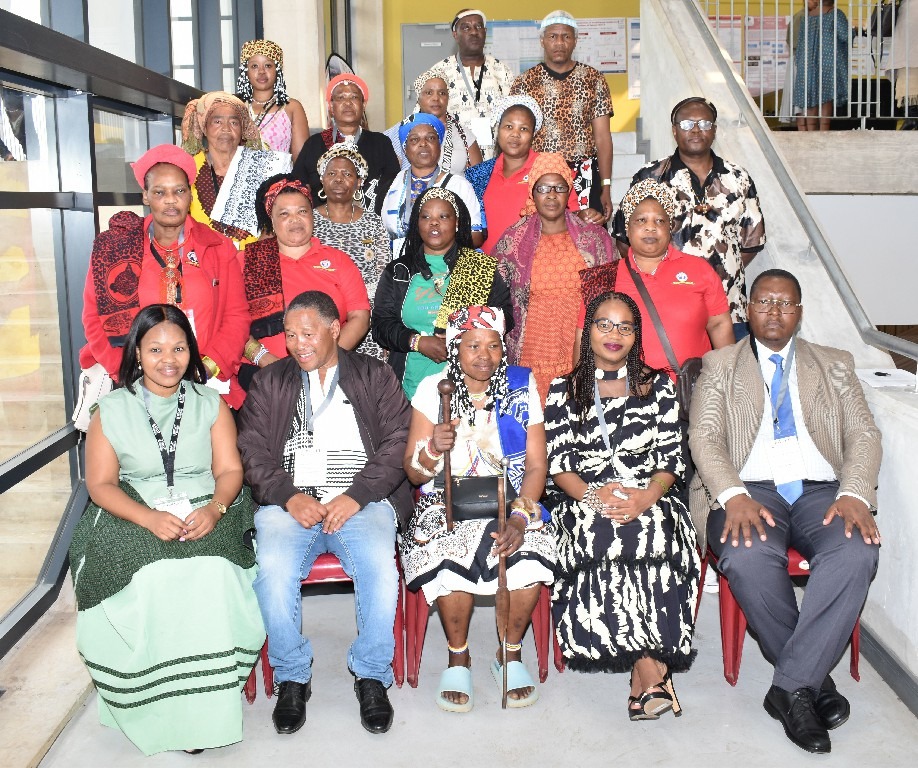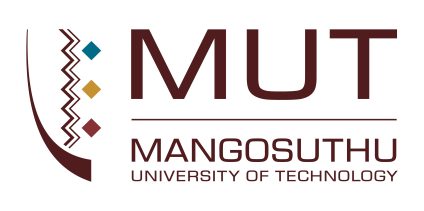
The two-day second Regional Traditional Medicine Symposium that began yesterday, and will end today – 29 August 2025, and hosted at MUT main campus, and off campus, highlighted the importance of the role played by the traditional healers in the welfare of the nation, a role they have been playing since the dawn of human nature.
The Vice-Chancellor and Principal of the Institution, Professor Nokuthula Sibiya, described the event as “a moment in history where our heritage, our science, and our future meet in one space”.
Contrary to the belief that Western medicine is better than traditional medicine, the symposium sought to put some of the myths about the relationship between these forms of providing healing to rest, and argued strongly for what is right and what should be known about the traditional medicine so that people will have a better understanding of it. One of the traditional healers, Fakazile ‘Shayimamba’ Gbushe, Deputy Chair, eThekwini Traditional Health Practitioners (ETHP), from Q Section, Umlazi Township, commended MUT for its constructive attitude towards the traditional healing profession. “This will give those who do not understand our trade a chance to know it. MUT has young people who do not know about traditional healing,” said Gambushe. Gambushe also said that now those who attended the event know that the alternative healing is not a bad thing. “We also learn from Western medicine. Those who practice Western medicine, and the academics who do research in traditional medicine, will also get a chance to learn more about our ways of healing, and in some cases, advise,” said Gambushe.
Gambushe said that it was important to highlight that the two strands of healing are complementary towards each other; there is no competition. Gambushe said that traditional medicine has been used by humans for ages; western medicine is derived from traditional medicine, she said.
The fact that traditional medicine has sustained humanity for centuries was supported by Professor Sibiya, who said traditional medicine has been “the heartbeat of our communities for centuries. It has healed, comforted, and sustained our people in villages and cities alike, long before hospitals, pharmacies, and western health policies existed”. The Dean of the Faculty of Applied and Health Sciences, Professor Alfred Msomi, also landed support. Professor Msomi said that “our theme, ‘Harnessing African Indigenous Knowledge for Good Health and Well-being,’ is not merely a topic for discussion; it is a call to action. It is a call to recognise that the path to holistic health for our people and our continent lies in the wise and scientific integration of the knowledge systems that have sustained us for millennia with the innovative research methodologies of today”.
Gambushe listed several simple traditional medicines they use to cure people and animals. Some of these traditional medicines are easily accessible. ‘Iboza’ is usually planted in the household gardens.
“As traditional healers, we should make sure that we guide the users well. We need to follow the traditional methods of harvesting the herbs and plants that we use. And give the right instructions to the users,” Gambushe said. Gambushe added that sometimes they need to perform a traditional offering when gathering traditional medicine. This is because some of these medicines are linked to be linked to ancestors and other powerful spirits.
Also, the guest speaker, Dr Nomakhosi Mpofana, a Lecturer in the Department of Somatology at the Durban University of Technology (DUT),said that the “traditional remedies or medicinal plants are used by 80% of the world’s population living in impoverished countries, especially in rural arears as a source of primary health care for preventing and treating diseases such as asthma, diabetes, cardiovascular disorders, cancer, gastrointestinal disorders and skin disorders. “Our traditional healers understand the ecosystems of health, the plants, the spirits, the community dynamics,” Dr Mpofana said.
Dr Mpofana emphasised that those learning about traditional healing have a duty to protect the knowledge they gather, keep it, and not sell it to the highest bidder. They must have a professional relationship with the sources of knowledge, who are the community from which they gather knowledge.
The symposium also afforded MUT staff and their counterparts the opportunity to present papers on various health-related topics. Six of the eighteen papers that were presented on the first day were presented by MUT staff.
A PhD student at the University of KwaZulu-Natal, Lerato Mpobane, presented a traditional perspective on the causes of infertility. Mpobane presented a very complex picture of why a woman is not able to fall pregnant. She said some of those are environment-based, while others are a result of the woman’s relationship with her ancestors. Mpobane’s point was that there would be no solution to the problem if the causes are not understood.
The symposium will continue today, off campus, where another guest speaker, Professor Nceba Gqaleni, from the University of KwaZulu-Natal and Africa Health Research Institute, will make a presentation on “Decolonising Health: Integrating indigenous knowledge into contemporary health systems. Eight MUT staff members will make presentations on this day.
